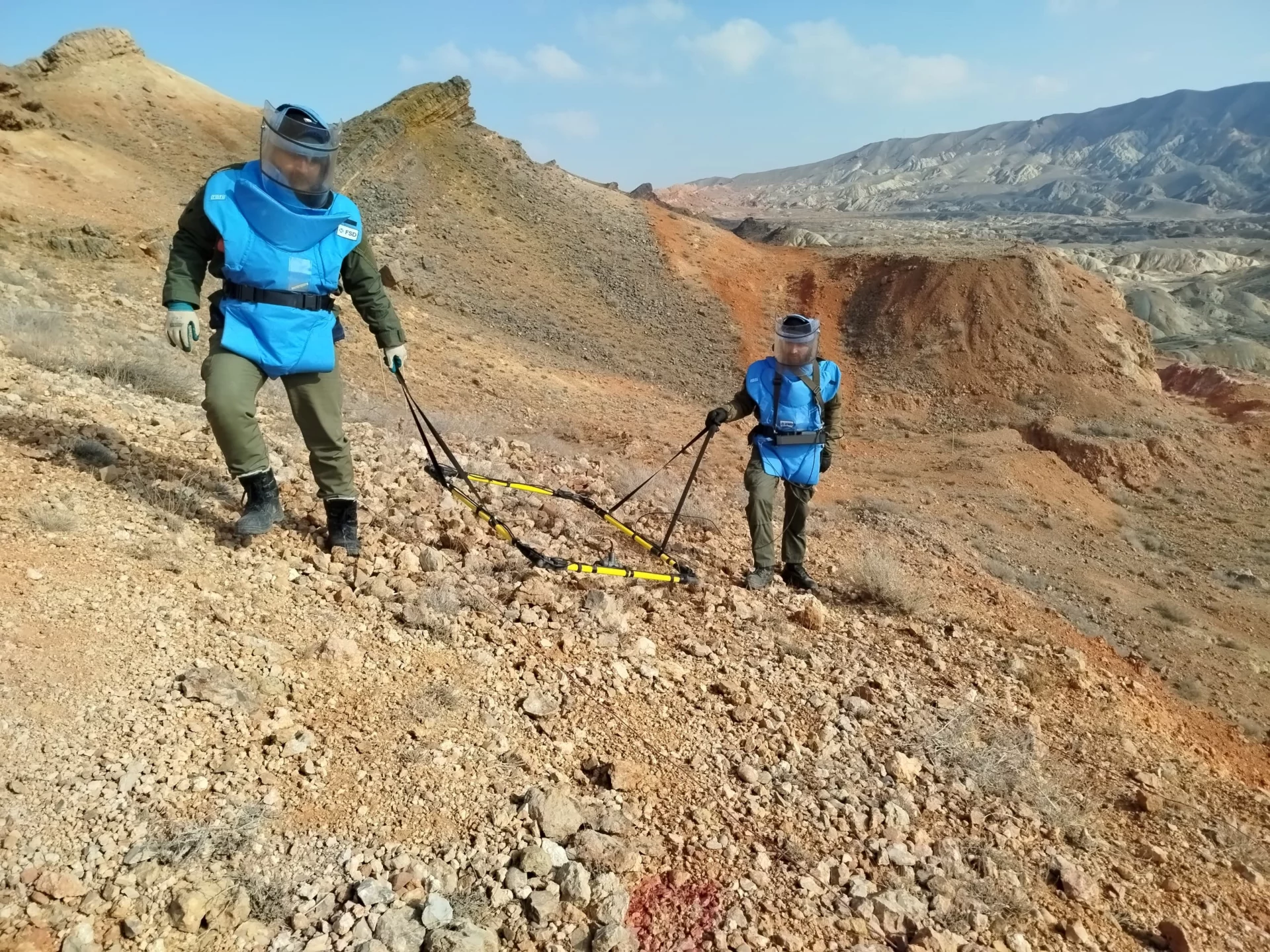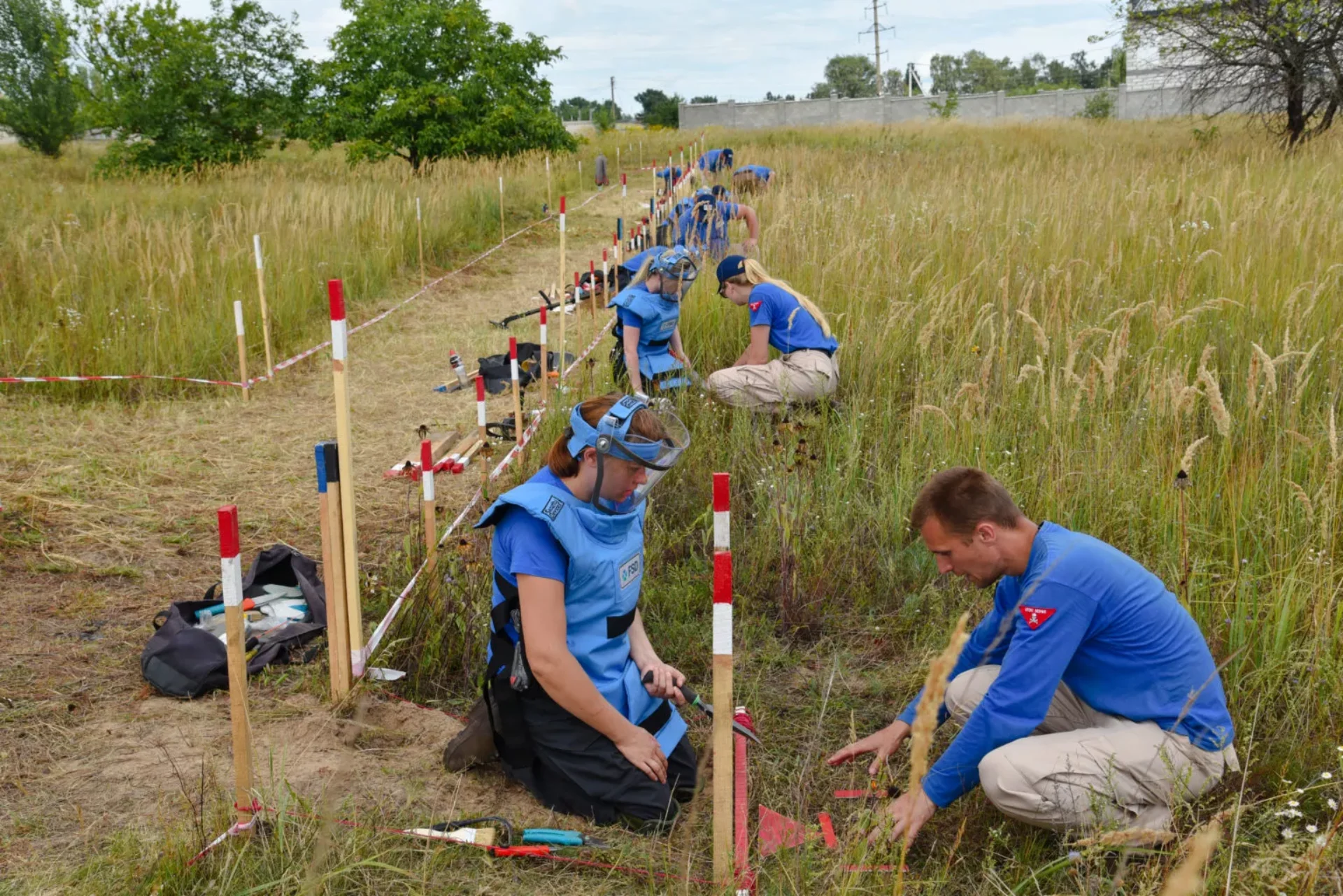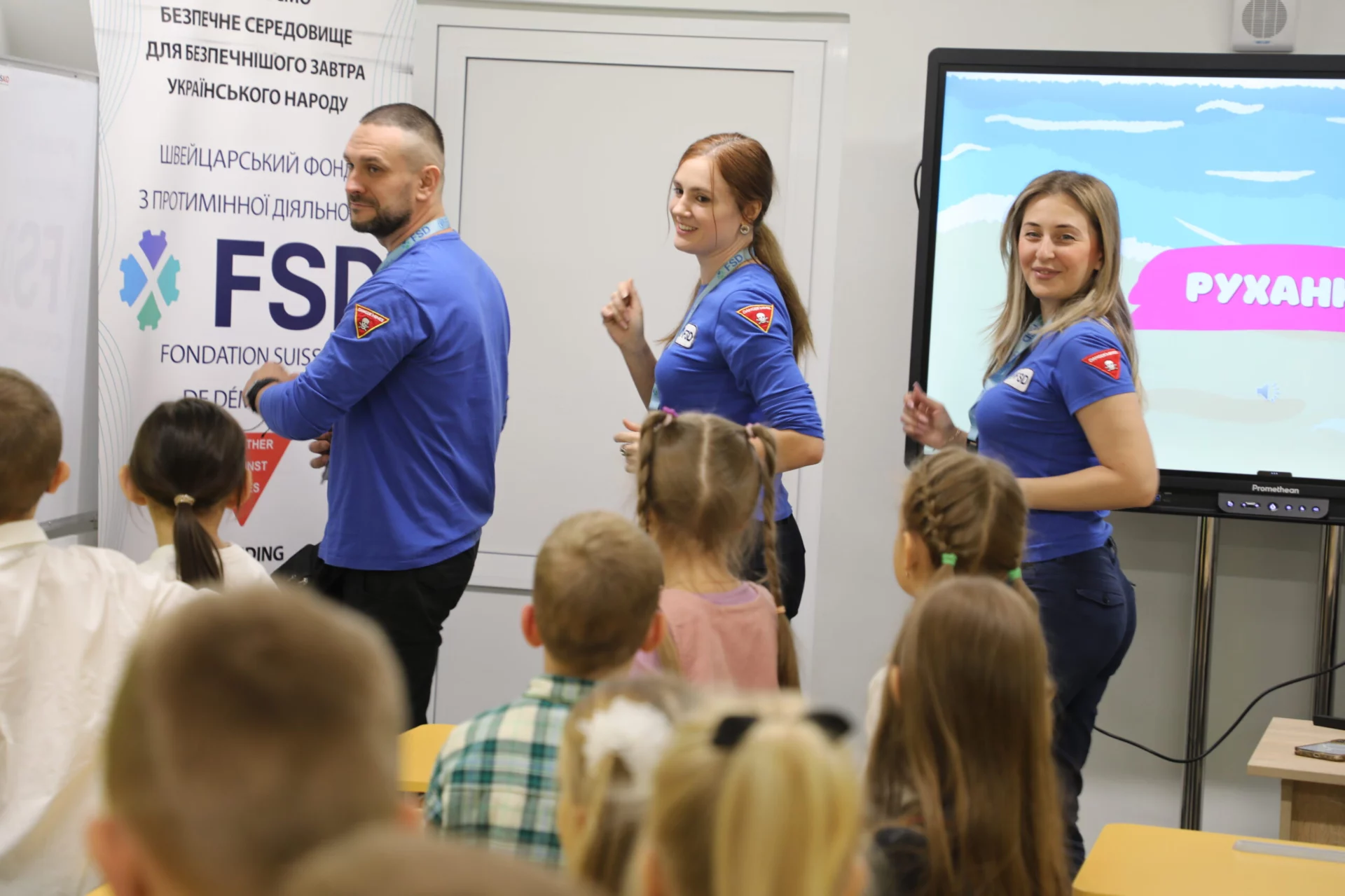Nous utilisons des outils de mesure d'audience (comme Google Analytics 4 et Clarity), via Google Tag Manager, pour comprendre l'utilisation du site et l'améliorer. Les données sont utilisées à des fins statistiques et ne servent pas à la publicité ciblée.
Notre histoire
La FSD a mis en œuvre son premier projet de déminage en Bosnie-Herzégovine en 1998, peu après l’entrée en vigueur de la Convention d’Ottawa sur l’interdiction des mines antipersonnel. Depuis, nos démineur·euses ont neutralisé plus d'1,4 million d’engins explosifs. Retrouvez ici les moments clés de l’histoire de l’organisation.
- 2024
- 2022
- 2021
- 2020
- 2018
- 2015
- 2014
- 2013
- 2012
- 2011
- 2010
- 2008
- 2007
- 2006
- 2005
- 2004
- 2003
- 2002
- 2001
- 2000
- 1999
- 1998
- 1997


2024
La FSD renforce sa présence en Ukraine avec plus de 650 collaborateur·trices déployé·es. Au Tadjikistan, elle reprend le déminage pour aider à atteindre l’objectif d’un pays sans mines d’ici 2032.


2022
Face à la généralisation de la guerre en Ukraine, la FSD quadruple ses effectifs et déploie des machines de déminage pour accroître l'efficacité des opérations.


2021
L’ONG irakienne SHO, formée par la FSD, devient la première organisation nationale accréditée pour le déminage. La FSD lui transfère six équipes de déminage et de sensibilisation au danger des mines.


2020
En République centrafricaine, la FSD lance un projet de reconstruction d’infrastructures pour renforcer la stabilité du pays et met en œuvre un programme de réintégration d’ancien·nes combattant·es.


2018
La FSD déploie ses premières équipes de déminage féminines en Irak, renforçant l'inclusivité dans un secteur où les femmes sont encore peu présentes.


2015
La FSD relance son programme de lutte antimines en Irak. Début d'un projet de soutien au processus de paix en République centrafricaine.


2014
La FSD entame un nouveau projet de lutte antimines en Ukraine. L'organisation obtient sa première certification ISO 9001, qui reconnaît la qualité de ses systèmes de gestion.

2013
Au Mali, la FSD évalue les compétences de l’armée en matière de gestion des stocks d’armes et de munitions, puis organise des formations pour renforcer ses capacités.


2012
Mise en place d’un programme de renforcement des compétences en matière de déminage en Arménie. Fin de l’opération au Sri Lanka, au cours de laquelle plus de 1000 démineur·euses ont été formé·es.


2011
Début des évaluations de la pollution liée aux anciennes activités minières au Kirghizistan. Déploiement d'équipes de déminage en Libye et au Soudan du Sud.


2010
Premiers tests de drones de détection de mines en Libye. Début d’un projet environnemental de réhabilitation d’anciens sites d’extraction d’uranium au Tadjikistan.

2008
Lancement d’un programme de destruction des stocks d’armes et de munitions obsolètes au Tadjikistan.


2007
La FSD est mandatée pour évaluer les besoin en déminage en Angola. Création de Crosstech S.A., filiale commerciale entièrement détenue et contrôlée par la FSD.


2006
Au Mozambique, la FSD lance un programme de renforcement des compétences nationales en déminage. Ouverture d'un bureau à Manille, dédié à la comptabilité, la logistique et la gestion administrative.


2005
Au Sri Lanka, les équipes de la FSD interrompent temporairement le déminage pour secourir les survivant·es du tsunami. La FSD crée son entité sœur en France: l’association FSD France.


2004
La FSD devient l’une des premières ONG de Suisse romande à obtenir la certification ZEWO. Des programmes de lutte antimines sont lancés au Burundi et au Laos.


2003
Nouvelle opération de déminage en appui au Programme alimentaire mondial, cette fois en Irak. Lancement parallèle de programmes de lutte antimines au Soudan et en République démocratique du Congo.


2002
Lancement d’opérations de déminage à grande échelle au Sri Lanka et au Tadjikistan.


2001
En Afghanistan, la FSD déploie des équipes de déminage dans le cadre d’un accord de coopération avec le Programme alimentaire mondial, afin de sécuriser l'acheminement de l'aide humanitaire.

2000
La FSD lance des opérations de déminage en Albanie tout en poursuivant des efforts en Bosnie-Herzégovine et au Kosovo.

1999
Début des premières opérations de grande ampleur pour la FSD en Bosnie-Herzégovine, au Kosovo et en Croatie, où les restes explosifs de guerre font de nombreuses victimes civiles.

1998
Un premier projet de déminage humanitaire est lancé en Bosnie-Herzégovine.

1997
Un groupe de citoyens suisses fonde la "Fédération suisse de déminage".